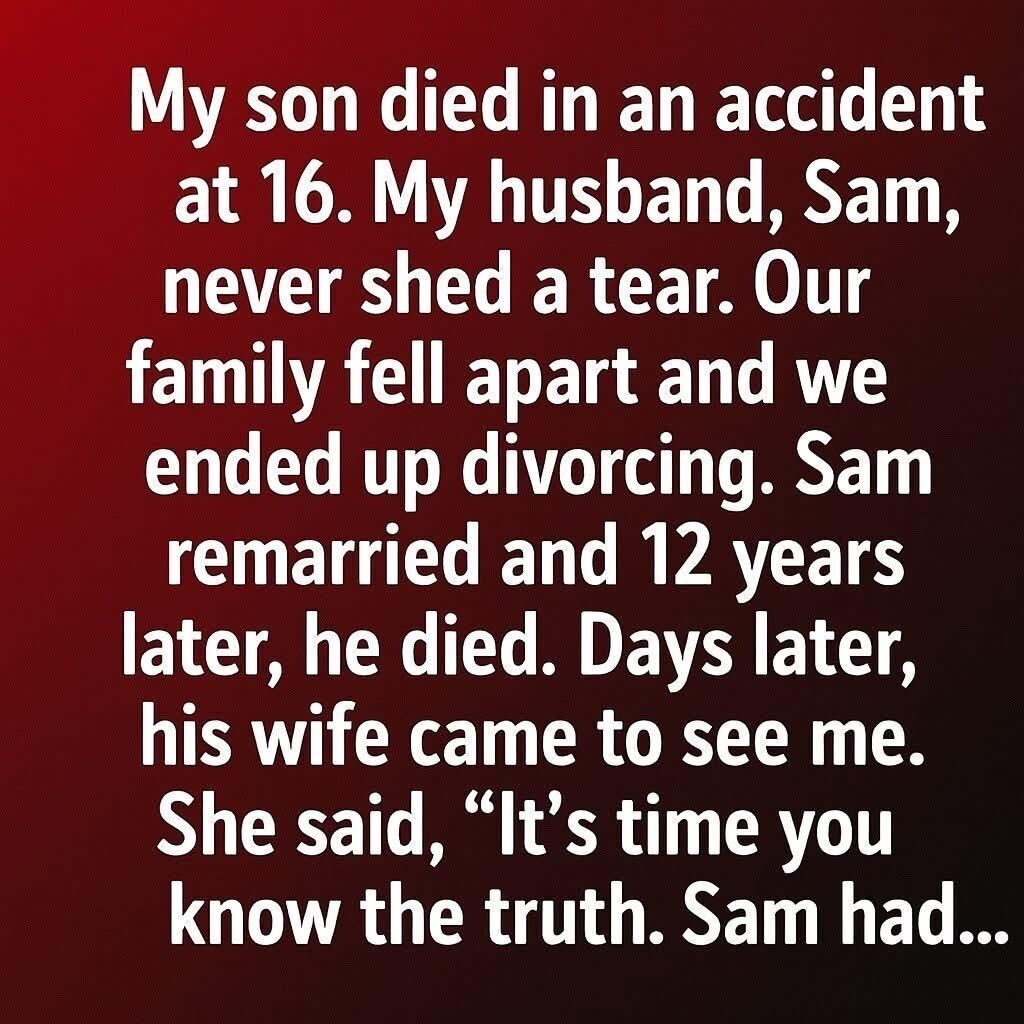The Letters He Could Never Speak
My son passed away when he was only sixteen. It was a loss that shattered our family, leaving a silence that echoed through every room of our home. My husband, Sam, never shed a tear. He carried himself with a stoicism I mistook for strength, but over time, that quiet rigidity created a chasm between us. We drifted apart, our grief pulling us in different directions, and eventually, we divorced.
Years passed. Sam remarried, and life went on—or so it seemed. But twelve years after our separation, Sam too passed away. His death reopened old wounds I had thought had scarred over. I felt the familiar ache of unfinished conversations and lost moments. Then, a few days later, I received a visit I hadn’t expected—his wife, Sam’s widow, standing on my doorstep with a quiet look of solemnity.
“It’s time you know the truth,” she said, her voice barely above a whisper. “Sam had…”
She held out a small wooden box. It was worn, the edges smooth from frequent handling, as though it had been opened and closed countless times over the years. I took it in my hands, the weight of it heavier than I anticipated. Inside were dozens of envelopes, each one meticulously sealed, each one bearing my son’s name written in Sam’s careful hand.
“Every year, on his birthday,” she explained softly, “Sam would go to the same quiet hill where you used to take him. There, he wrote to him. No one ever saw these letters. This… this was his way of grieving, of staying connected. He carried this pain silently all these years.”
I sat there for a long time, holding the box, feeling as though I was touching a secret life I had never known. One by one, I began to open the letters. At first, my hands shook; each envelope felt like a doorway into a world of love and sorrow I hadn’t realized existed. Inside, the pages were filled with memories of our boy—his laughter echoing across summer afternoons, his dreams, his mischievous smile. Sam wrote of small victories at school, of moments that made him proud, of times he had worried and loved and missed our son more than words could ever capture.
As I read, tears I had long held back fell freely. I realized, in that moment, that Sam had grieved differently than I had imagined. He hadn’t been unfeeling; he had simply carried his sorrow in private, locked away behind a quiet exterior. Those letters were proof of a love that had never faded, of a father’s heart quietly breaking year after year.
The box in my hands became more than letters—it was a bridge across time and loss. Through Sam’s words, I felt him there with us, honoring our son in ways neither of us could have expressed. The years of distance and misunderstanding melted away, replaced by a profound understanding: grief takes many forms, and love endures even when it is silent.
I kept the box close, returning to its letters whenever the ache of loss felt too heavy. And in that quiet, private ritual, I felt my son, I felt Sam, and I felt the enduring thread of family that death could not sever.
Even in death, Sam had found a way to speak, and through him, I learned that love often whispers where words cannot.


